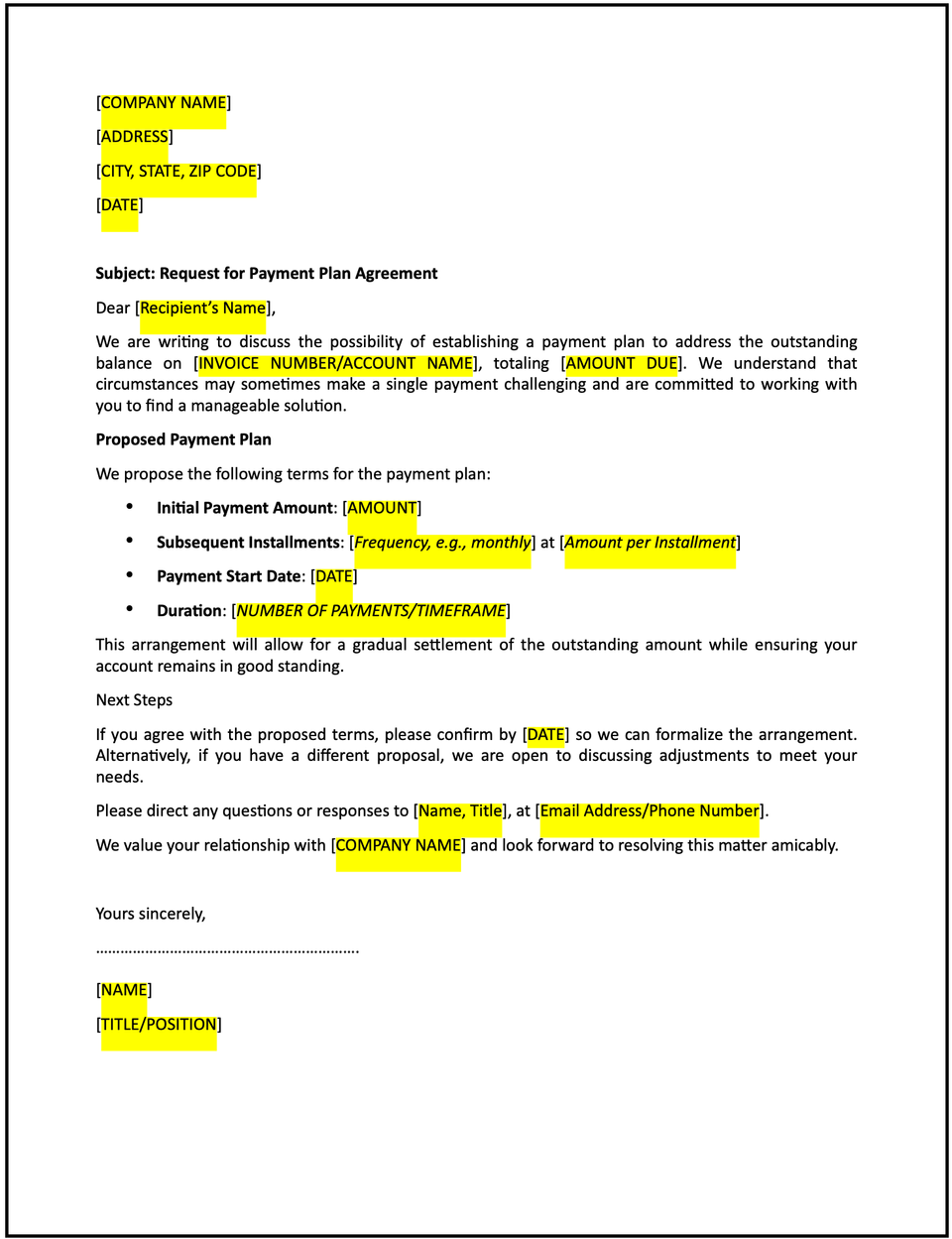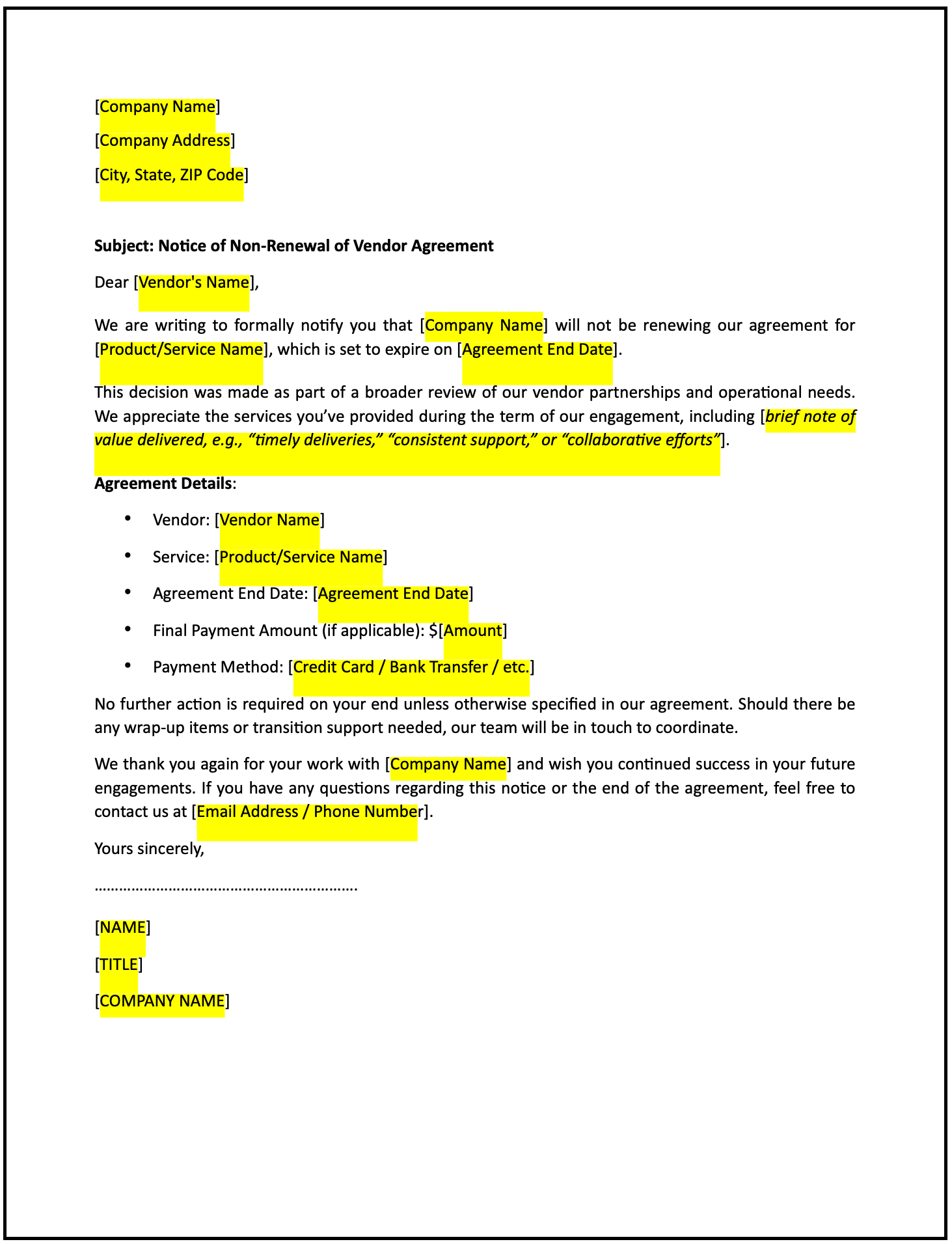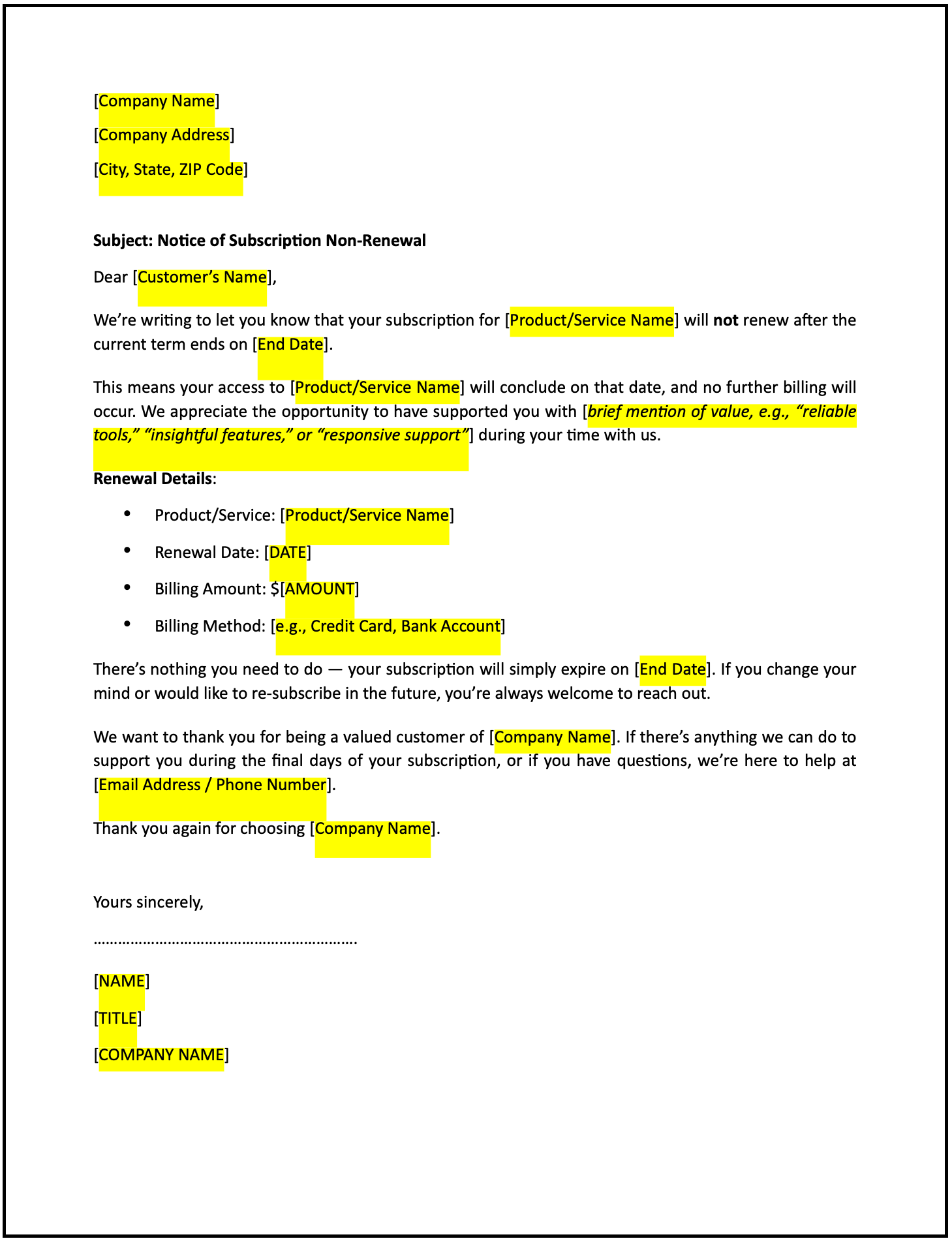Letter of request for payment plan agreement: Free template

Letter of request for payment plan agreement
A letter of request for a payment plan agreement is a formal communication used to propose a structured schedule for paying an outstanding amount over time. This letter outlines the proposed plan, explains the rationale, and demonstrates a commitment to resolving financial obligations while fostering collaboration.
How to use this letter of request for payment plan agreement
- Open with an introduction: Address the recipient respectfully and state the purpose of the letter—requesting a payment plan agreement.
- Provide context: Briefly explain the circumstances, such as financial constraints or unforeseen challenges, that necessitate the request.
- Specify the details: Clearly outline the proposed payment plan, including payment amounts, intervals, and duration.
- Offer reassurance: Emphasize your commitment to honoring the payment plan and resolving the outstanding balance.
- Include supporting information: Reference any attached documents, such as financial statements or prior agreements, to provide context.
- Invite collaboration: Encourage the recipient to discuss or modify the proposed terms to ensure mutual satisfaction.
- Maintain a professional tone: Ensure the letter is clear, respectful, and focused on fostering understanding.
- Provide contact information: Include details for the recipient to reach out with questions or to confirm the agreement.
Benefits of using a letter of request for payment plan agreement
This letter provides a professional and structured way to propose a payment plan while maintaining trust and clarity. Here’s how it helps:
- Promotes transparency: Clearly outlining the proposed plan builds trust and minimizes misunderstandings.
- Reflects professionalism: A well-crafted letter demonstrates respect and a commitment to resolving financial obligations.
- Encourages collaboration: Inviting feedback fosters constructive dialogue and mutual agreement.
- Supports financial planning: A structured plan allows both parties to manage their finances effectively.
- Maintains relationships: A respectful and solution-oriented approach preserves goodwill and trust.
Tips for writing an effective letter of request for payment plan agreement
- Be specific: Clearly describe the proposed payment plan, including amounts, intervals, and total duration.
- Use professional language: Maintain a respectful tone to foster understanding and cooperation.
- Provide context: Briefly explain the circumstances that led to the request to build credibility and goodwill.
- Include supporting evidence: Reference relevant documents that validate your proposal or provide context.
- Highlight next steps: Politely request confirmation of the plan or a discussion to finalize the terms.
- Keep it concise: Focus on the key points while ensuring the tone is professional and collaborative.
Frequently asked questions (FAQs)
Q: What details should I include in this letter?
A: Include the total amount due, proposed payment amounts and intervals, duration of the plan, and any supporting documentation.
Q: Should I personalize the letter?
A: Yes, addressing the recipient directly ensures clarity and demonstrates attentiveness.
Q: Who typically sends this letter?
A: Business owners, financial managers, or individuals seeking to resolve outstanding balances typically send this letter.
Q: How formal should this letter be?
A: The tone should be professional yet empathetic, focusing on collaboration and resolution.
Q: When should this letter be sent?
A: Send the letter as soon as the need for a payment plan arises to allow sufficient time for review and discussion.
Q: Can this letter include alternative payment options?
A: Yes, offering flexibility demonstrates goodwill and increases the likelihood of agreement.
Q: Is acknowledgment from the recipient required?
A: While not mandatory, requesting acknowledgment ensures the recipient is aware of and considering the proposal.
This article contains general legal information and does not contain legal advice. Cobrief is not a law firm or a substitute for an attorney or law firm. The law is complex and changes often. For legal advice, please ask a lawyer.


